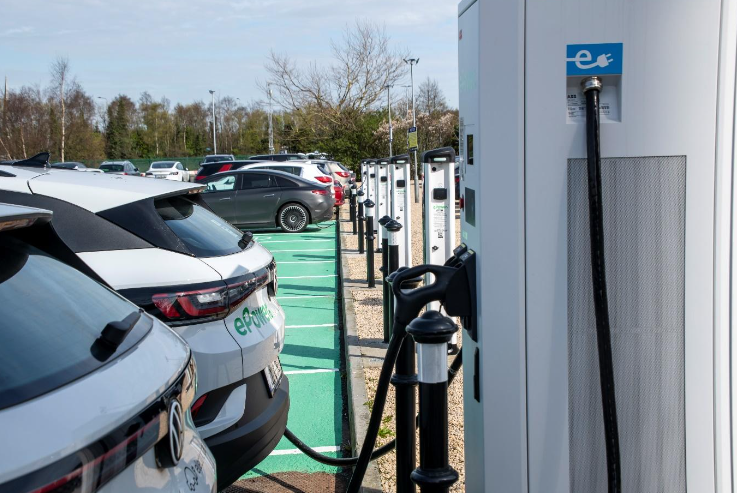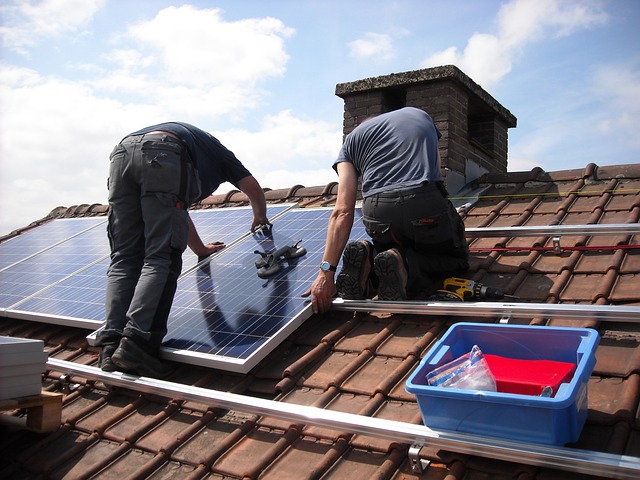
The European Union has announced that it plans to have only new electric vehicles by 2035 to help with climate change. The news was largely celebrated by climate change campaigners who wanted other governments to ban new gas and diesel vehicles, as the E.U. has done effectively.
Electric vehicles (EVs) are a great way to reduce our carbon footprint because they do not produce any emissions from the car. This is important because car emissions are a major contributor to climate change. By switching to electric vehicles, we can reduce our emissions and help fight climate change. Not only that – electric vehicles and EV chargers are also becoming more and more affordable, so there is no excuse not to switch.
But what’s the reason behind this decision? Will this law significantly contribute to the fight against climate change? Moreover, how will this impact motorists in Ireland and other E.U. nations?
Why the E.U. is Moving Towards Having Only New Electric Vehicles on the Road by 2035
The move is part of the European Union’s Green Deal, which aims to make the bloc climate neutral by 2050. The decision to ban the sale of new gasoline and diesel cars by 2035 is a bold and necessary step in the fight against climate change. With the world on the brink of an environmental crisis, we must take action to reduce our reliance on fossil fuels.
In addition to lowering greenhouse gas emissions, switching to electric cars will improve air quality and reduce noise pollution. This is a win-win for both the environment and public health. It sets a strong example for other countries to follow. With the right policies in place, we can transition to a cleaner, greener future.
Electric Vehicles – The Key to Significantly Reducing Emissions
EVs are the key to reducing emissions, as they produce no exhaust fumes. They also have a much lower environmental impact than traditional petrol or diesel cars. They don’t produce any emissions from the exhaust pipe and generate far less pollution during the manufacturing process.
In addition, electric cars are usually much more efficient than their petrol or diesel counterparts, meaning that they use less energy to travel the same distance. As a result, electric vehicles offer a very appealing way to reduce our environmental impact.
There are several other benefits to using electric vehicles as well. They are much quieter than traditional cars, so they are kinder to our ears. Since they don’t have any moving parts in the engine, they are very low maintenance. You’ll never need to change the oil or tune the engine.
Electric cars are becoming increasingly popular worldwide, and it’s not hard to see why. For anyone who cares about the environment, they offer a very appealing way to travel.
How Will This Law Impact Motorists in Ireland and Other E.U. Nations?
Motorists all across the European Union will need to switch to electric vehicles (EVs) to comply with the law. Over the years, EV sales in the E.U. have been steadily increasing. However, more work needs to be done to have only new EVs on E.U. roads by 2035. This is because many are still reluctant to switch to EVs.
One of the biggest reasons behind their apprehension is that charging an electric car can be challenging. In Ireland, charging stations are few and far between, making it difficult for EV owners to find a place to charge when they are out and about. To add, while home chargers are accessible, installation costs can be expensive.
But these issues aren’t without solutions. For one, more public and commercial EV chargers can be installed to make charging more accessible. Grants can also be given to EV owners and establishments to reduce their EV charger installation expenses.
These initiatives are already being done in Ireland. For example, EV owners can apply for an SEAI grant of €300 if they want to install electric vehicle chargers in their houses. The Government have also been working on setting up more public charging stations.
But more work needs to be done as Ireland is way off its target of having 100,000 charging stations by 2030. According to a report, only 1,900 are installed all across the country. Hence, Ireland should undoubtedly step up its efforts in rolling out public charging points.
Ultimately, providing a convenient and accessible way to charge EVs will make it easier for people to switch. As a result, they would play a vital role in helping Europe reach its emissions targets.
Will This Law Greatly Help in the Fight Against Climate Change?
There is no doubt that climate change is one of the most pressing issues facing the world today. Communities across the globe are already feeling the effects of global warming, and the situation is only getting worse. That’s why it’s so important that we take decisive action to reduce greenhouse gas emissions and prevent further damage to our planet.
The good news is that there are already many plans in place to do just that. For example, the Paris Agreement is a landmark international treaty as countries committed to take steps to tackle climate change.
However, some critics say that these plans do not go far enough and that more needs to be done to tackle climate change. They argue that we need to set more ambitious targets for reducing emissions. They also say that we need to do more to support developing countries as they transition to cleaner energy sources.
There is no easy solution to the problem of climate change, but it’s clear that we need to take immediate and decisive action. We must unite as a global community and do everything we can to protect our planet for future generations.
It’s clear that the European Union is taking climate change seriously and is looking for ways to reduce emissions. The planned ban on petrol and diesel cars is just one step, but it’s an important one.
But we need to do more if we want to fight climate change. We need to switch to renewable energy sources, stop using fossil fuels, and reduce our consumption. We also need to educate people about climate change and how they can help reduce it.
What do you think? Will the plans for electric vehicles help reduce emissions and combat climate change?
Are you thinking of buying an EV? At ePower, we offer affordable charging solutions for homeowners and businesses. Call us on 01-9029800 or click here for a free estimate.
Royalty-free images supplied from PixaBay as part of SEO service from 3R.




